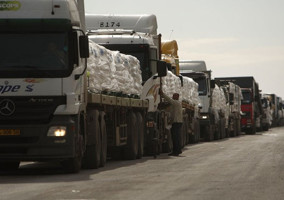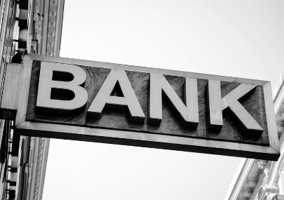At the end of July, retired British politician Nigel Farage announced that he had suffered de-risking with Coutts Bank.
Coutts said that it was cutting ties with Farage and closed his bank accounts after it saw “significant reputational risks” and that the former Brexit Party leader’s views were “at odds with our position as an inclusive organisation”.
Farage has since launched his own campaign website against banks’ anti-money laundering processes and filed a subject access request with the row gathering mainstream media coverage, including front page news with the Telegraph and Mail. NatWest, which owns Coutts, launched an investigation and is being made to explain the de-risking processes of his accounts by the Financial Conduct Authority. Farage believes he has been de-risked as a politically-exposed person.
For Muslim-led charities, the situation is nothing new and watching this furore has felt nothing short of hypocritical as our concerns have failed to reach similar mainstream attention.
Financial discrimination
For decades, charitable organisations, mosques and Muslim individuals have long experienced financial discrimination with the sudden closure of their bank accounts and freezing of funds with little to no communication as to the reasons why.
Charitable funds, donated by the public to provide essential assistance here in the UK or destined to deliver aid in war-torn and poverty-stricken countries, have been blocked. On request of explanation, many of these charities are given nothing more than that this is banking procedures.
Muslim Charities Forum (MCF) has been concerned for years as to the disproportionate effect of this unclear banking practice on Muslim-led third sector organisations. Whether it is named de-banking or de-risking, there are problematic biases and medians used in terminating or restricting banking activities.
Many Muslim-led organisations have experienced the same treatment for over 20 years, suddenly left without banking services and prevented from distributing fundraising income to those in need. The impact is long-running – opening of new accounts for charities is often a lengthy process subject to much scrutiny and taking several months, further delaying an essential response.
For donors, disillusioned by this issue and the security of their money with legitimate, registered charities; the desire to turn to less regulated charitable giving runs high. Despite this, the issue has failed to gather media, government or public attention.
Careful checks and risk management of money transfers are understandable. Many charities work and deliver vital aid in countries where political unrest and corruption run high. This is the very nature of the work in meeting the needs of desperate, hungry, innocent people caught in oppression.
But despite adhering to all legislative and legal processes and operating with complete transparency, various banks have continued to operate their de-risking processes disproportionately, jeopardising the lives of thousands who are dependent on charitable assistance.
Until now, the depth of this issue has flown below the radar of government and official bodies who have not responded to previous calls from charities to request the banking sector to operate with transparency.
Need for a clear framework
The Farage-Coutts row is still playing out and for those Muslim-led charities who have also been affected, the result will be watched with full attention. With Farage’s own political views at odds with much of the ethos of these groups, it is ironic that his circumstance now has so much in common with Muslims who bank in the UK.
We can’t help but ask the question: why does Farage’s situation gather so much more leverage in the eyes of the media? Is it because his views, deemed controversial by many, are more close to home? Do Muslim-led charities and their communities not require the same level of concern?
At MCF, we have long raised awareness of this issue and continue to do so. Last year, we joined forces with Conciliation Resources and Bond to deliver an event titled Confronting the Hurdles that brought together key stakeholders to discuss issues of financial access and de-risking. Our research found that this issue is widespread and harmful, with Muslim-led groups placed under disproportionate, intense scrutiny despite total adherence to banking measures.
In June last year, NAVCA, NCVO and other collaborative partners produced a brief on the challenges of banking for the voluntary sector, citing the inaccessibility and poor customer service experienced by many involved in charitable work.
With the Coutts investigation gaining traction, now is the time for the government to insist on a clear framework for banks to adhere to that operates in the global public interest and with the same complete transparency that is requested of charitable organisations.
No longer can the well-intentioned donations of the public be held, undelivered to those who urgently need them. No longer can legal, registered charities who operate in high-risk areas to save lives, be prevented from doing so.
The government must step in and ensure that the banking sector operates fairly and is prevented from hampering further peace-building and life-saving efforts.












